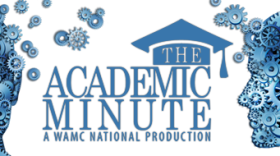Monday, December 15
Steven Barger - Northern Arizona University
Relationships & Depression
Dr. Steven Barger is a professor of psychological sciences at Northern Arizona University. His research shows that higher-quality relationships and more frequent social contact with acquaintances are associated with better health. Psychological well-being is affected by the quality of ones’ relationships and data suggests strong social networks improve longevity. Dr. Barger uses large data samples of older adults from the Centers for Disease Control and prevention. Additionally, Barger’s research addresses the effects of income and education on well-being
Tuesday, December 16
Leah Levac - University of Guelph
Community Vitality Index
Dr. Leah Levac is an Assistant Professor of Community Engaged Scholarship, based in the Department of Political Science at the University of Guelph in Guelph, ON, Canada. Her interdisciplinary research program seeks to build partnerships and research projects focused on the engagement of historically marginalized publics in public policy development. Her interests include women’s engagement in policy development, feminist intersectional participatory research methods, and strategies and governance structures that facilitate leadership and engagement opportunities for women with diverse social identities, particularly young women and Indigenous women. She teaches courses in public policy, civic engagement, and community engaged scholarship research methods. During her academic career, she has held research awards and grants from the Trudeau Foundation, the Social Sciences and Humanities Research Council, and the Canadian Institutes of Health Research.
Wednesday, December 17
Volker Thoma - University of East London
Recognizing Faces
Dr Volker Thoma FHEA received an MSc (Dipl. Psych) from the University of Regensburg, Germany and worked as a Human Factors researcher at the Fraunhofer Institute of Applied Science (Stuttgart) for three years. In 2002, Volker finished his PhD at Goldsmiths’ University of London on the role of attention in object recognition, with Jules Davidoff. His research interests are mainly in attention, object and face recognition, memory, and decision making. He is using behavioral and neuroimaging techniques to investigate the role of attention in object recognition (in collaboration with Rik Henson, MRC Cambridge; Alan Richardson-Klavehn, Magdeburg; John-Dylan Haynes & Philipp Sterzer, Humboldt University Berlin) and face perception (with Nilli Lavie, ICN/UCL). He also investigates the role of heuristics in judgment and decision-making, in particular the recognition heuristics, as well as risk perception.
Thursday, December 18
Richard Lachmann - University at Albany
The Tonality of Textbooks
Dr. Richard Lachmann (Ph.D. Harvard 1983) is professor of sociology at the University at Albany, State University of New York. His book, Capitalists In Spite of Themselves: Elite Conflict and Economic Transitions in Early Modern Europe (Oxford, 2000) received the 2003 American Sociological Association’s Distinguished Scholarly Publication Award. He is the author of States and Power (Polity 2010). He currently is writing a book entitled First Class Passengers on a Sinking Ship: Elite Privilege and the Decline of Great Powers, 1492-2012 which examines the decline of dominant economic and military powers in early modern Europe and the contemporary United States. He also is researching media coverage of war deaths in the United States and Israel from the 1960s to the present.
Friday, December 19
Joni Finney - University of Pennsylvania
College Completion
Dr. Joni Finney is Director of the Institute for Research on Higher Education (IRHE) and Professor of Practice at the Graduate School of Education of the University of Pennsylvania. She is also an affiliate with the Wharton Public Policy Initiative. At Penn, Dr. Finney initiated and was Co-Principal investigator of a five state study to understand how public policies explain higher education performance; The Attainment Agenda (2014) highlights findings from this study.
These segments and much more are available at AcademicMinute.org





